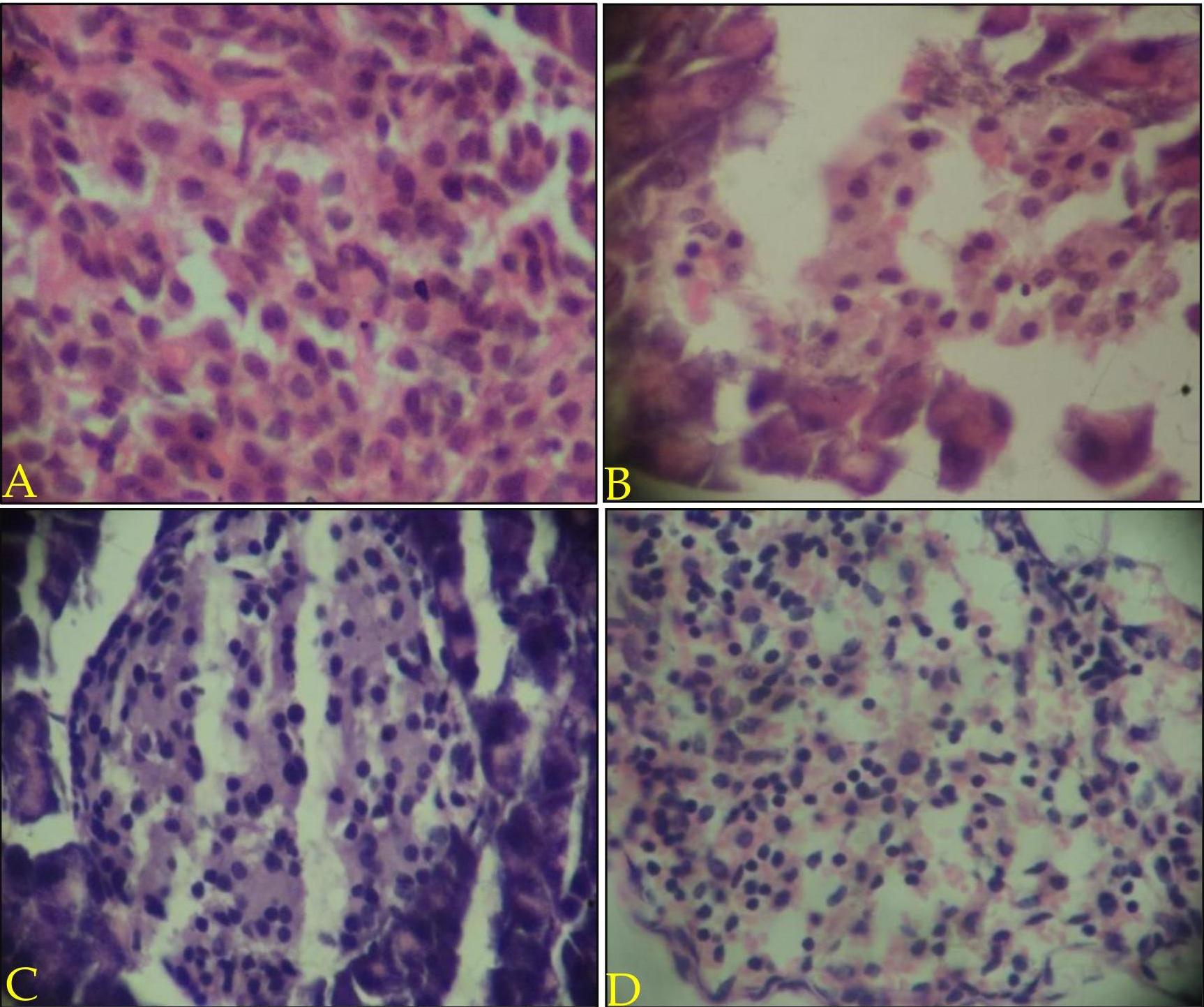SYZYGIUM CUMINI DEPARTS THE NEGATIVES OF THE ALLOXAN INDUCED DIABETES IN SWISS ALBINO MICE
DOI:
https://doi.org/10.47070/ijraps.v5i6.116Keywords:
Syzygium cumini, Pancreas, Anti-diabetic, Alloxan, Swiss albino miceAbstract
Background: Because of the unfavorable side effects and higher cost of synthetic anti-diabetic medicines, an alternative approach to manage diabetes mellitus from an herbal source would be safe and within the affordability of the common people. Hence we investigated the hypoglycemic and pancreatic islets restoration effect of Syzygium cumini seed extract using glibenclamide as positive control.
Methods: Six (06) normal control mice and eighteen (18) alloxan induced diabetic mice grouped as diabetic control, Syzygium cumini and standard drug, were used for this experiment. In comparison to a reference drug-glibenclamide (@600μg/kg body weight), Syzygium cumini seed ethanolic extract (@500mg/kg body weight) was given orally once daily for thirty days to counteract alloxan induced alteration in blood glucose level and pancreatic cells morphology. Fasting blood glucose (FBG) level was evaluated at 15 days intervals, whereas mice were ethically sacrificed to collect pancreas at the completion of the experiment and processed for histological examination.
Results: Research results revealed that in both the Syzygium cumini and standard drug treated groups, FBG level were significantly lower than the diabetic control group (P < 0.05). Histologically, smaller islets and necrosis, present in the pancreas of diabetic mice were returned to normal following treatment with Syzygium cumini seed extract and standard anti-diabetic drug.
Conclusion: Syzygium cumini seed extract could be recommended as anti-diabetic for humans and animals especially in developing and under developed countries where this plant is readily available and affordable.
Downloads


